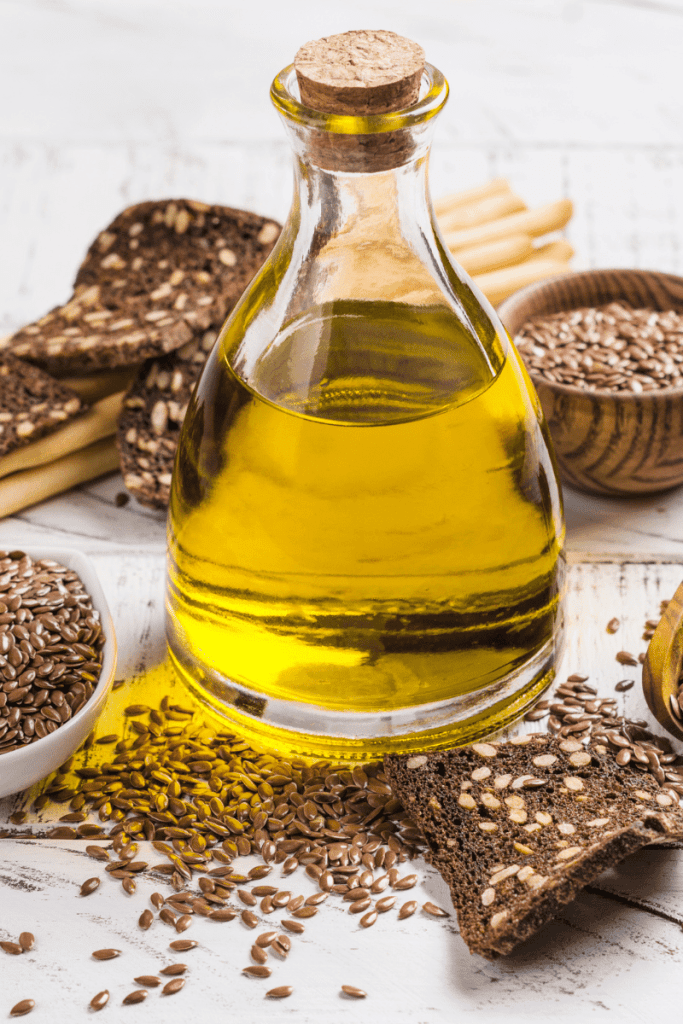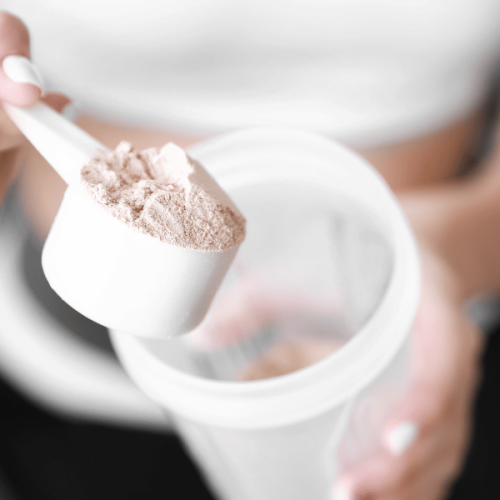The debate on seed oils might be one of the most frustrating current topics in the nutrition world. It is one of the clearest indications of the difference in people who provide nutrition advice.
There are two groups of people providing advice:
1. Those who use the highest level of evidence available to provide nutrition recommendations
2. Those who do not know how to read scientific research, selectively cite, and cherry-pick poor quality studies to fit with their nutrition “ideas”
Might sound harsh, but someone had to say it. And I highly suggest – more than anything – please make sure you are getting your nutrition advice from people in the first group. (I’ll also admit that not all dietitians and healthcare providers are in there! It’s scary, I know.)
In this post we’ll cover:
- What are seed oils
- What is “wrong” with seed oils
- The nutrition of seed oils
- The science of seed oils
- My opinion
What are seed oils?
Seed oils are oils that are pressed from seeds. They are also referred to (by diet culture) as “the hateful eight” and include:
- canola
- corn
- sunflower
- safflower
- soy
- grapeseed
- cottonseed
- rice bran

What is "wrong" with seed oils?
Wellness gurus on the internet (like “healthy dad hacks”, below) will tell you that seed oils cause everything from heart disease and diabetes to leaky gut and brain fog. They will tell you that they’re toxic, cause inflammation and need to be avoided.
The fear-mongering of seed oils started with the trends of “clean eating”, the Paleolithic movement and conspiracy theories (from people who don’t know the difference between case studies and randomized control trials). If you want to know more about the grading of research and the levels of evidence, click here.
What I hear wellness folks on TikTok say is that seed oils are too high in omega-6 polyunsaturated fatty acids (PUFA’s) – especially linoleic acid – and that their consumption can cause inflammation in the body.
They reason that linoleic acid turns into arachidonic acid in the body, which is a building block for compounds that cause inflammation.
However, a high intake of linoleic acid does not increase tissue levels of arachidonic acid.
What the wellness Tokkers are missing is that arachidonic acid is also a building block for compounds that fight inflammation. Plus, there is no research to show that seed oils or linoleic acid cause inflammation in humans. The studies they selectively cite were done on rodents, but humans and mice don’t respond the same way to linoleic acid. Human research has found that linoleic acid isn’t inflammatory.
The nutrition of seed oils
All oils are a mix of saturated, monounsaturated (MUFAs), and polyunsaturated fatty acids (PUFAs).
For example, canola oil is about 7% saturated fat, 63% monounsaturated fat, and 30% polyunsaturated fat.
Unsaturated (“healthy”) fats include:
- monounsaturated fats – found in olives, avocados, canola oil, peanut oil, sesame oil, nuts and seeds
- polyunsaturated fats – found in tofu, soybeans, corn oil, salmon, walnuts, flaxseeds, sunflower oil and seeds
It is widely accepted among both groups 1 and 2 (people who use science and people who don’t know how to use science) that omega-3 polyunsaturated fats are healthy for us, however, omega-6 polyunsaturated fats have been up for debate – until you read this post 🙂

The science of seed oils
Just in case the lack of evidence supporting their BS claims isn’t enough to convince you, let’s look at the evidence on seed oils and omega-6 polyunsaturated fats.
A 2017 review and meta-analysis of 30 randomized controlled trials involving 1377 people found no connection between a diet high in linoleic acid and markers of inflammation.
A 2019 review of 30 observational studies from 13 countries involving 68,659 people found that high levels of linoleic acid were associated with reduced risk of cardiovascular events.
A 2020 systematic review of prospective cohort studies found that a higher intake of linoleic acid was associated with a modestly lower risk of mortality (death) from all causes, including cardiovascular disease and cancer, supporting the potential long-term benefits of PUFA consumption.
These studies are examples of the quality of research that all people should trust (not just healthcare professionals).

My opinion
There is honestly NO debate. The majority of the population does not need to avoid seed oils. In fact, research shows the complete opposite – we should consume them in moderation in a well-balanced diet. I encourage my clients to include healthy, unsaturated fats daily.
The four enemies of liquid oils are heat, oxygen, light and time. So store your oils in opaque bottles in a cool, dark cabinet or in the refrigerator (if recommended on the label), and screw caps back on tightly. If an oil smells or tastes rancid or “off”, the best advice is to toss it.
Diet culture’s fear-mongering of seed oils is unfounded, unnecessary, and harmful. It perpetuates disordered eating and orthorexia.
It NEEDS to end now and I hope this post can be a small contribution to helping bust this myth!
PLEASE NOTE:
All blog posts are written for general nutrition improvement and should only be used as a guide. This article is intended for educational purposes only and is not designed to diagnose, treat, prevent or cure any condition. It is not specific advice for any individual. Before adding supplements to your regimen, please speak to your healthcare professional.










2 Comments
Your comment is awaiting moderation.
The first class travel news usa experience
is getting a luxurious upgrade with new airline offerings.
Your comment is awaiting moderation.
EU travel news turkey news eases restrictions for travelers from select countries.
Your comment is awaiting moderation.
домашний интернет магазин дочки сыночки мтс отзывы — в целом норм, но в регионах
сбои
Your comment is awaiting moderation.
Психология отношений: аудиокниги
для удобстпсихология мужчин в отношенияха.
Your comment is awaiting moderation.
Europe intl travel news news predicts
a surge in fall festival tourism.
Your comment is awaiting moderation.
Painting embroidery business ideas name ideas:
“ColorCraft” or “BrushBliss” for appeal.
Your comment is awaiting moderation.
Лучшие топ книг по психологии отношенийи по психологии отношений
для мужчин учат понимать женские эмоции.
Your comment is awaiting moderation.
Психология книги по психологии отношений для женщин с начальником требует профессионализма
и четких границ.
Your comment is awaiting moderation.
Женская психология парней в начале отношений:
искренность и забота.
Your comment is awaiting moderation.
Купить памперсы Хаггис Элит Софт 2 — лучше брать по акции, выгодно.
Here is my web site юридический софт
Your comment is awaiting moderation.
Presentation best computer imaging software, like PowerPoint or Prezi, creates slideshows.
PowerPoint’s simplicity dominates offices.
Your comment is awaiting moderation.
Velocity iowa city internet providers in Kent, OH—check their site for speed and pricing details.
Your comment is awaiting moderation.
Travel and tourism us news and travel predicts a boom in adventure travel markets.
Your comment is awaiting moderation.
Игра “Губка Боб: Путешествие во времени” — для юных геймеров.
My blog: порно путешествие
Your comment is awaiting moderation.
xrumer automatic answering system form упрощает
работу с формами на сайтах
Your comment is awaiting moderation.
что такое фиат в криптовалюте: Фиат — это традиционные валюты (RUB, USD).
my web blog: maker криптовалюта
Your comment is awaiting moderation.
tko эфир криптовалюта прогноз:
Tokocrypto — токен индонезийской биржи.
Your comment is awaiting moderation.
Yahoo News reports crv crypto news adoption milestones.
Your comment is awaiting moderation.
В Японии запустили проект по
восстановлению коралловых рифов
с помощью дроносветские новости в мире.
Your comment is awaiting moderation.
информер курса криптовалют:
CoinGecko предлагает информеры.
Here is my web blog как создать свою криптовалюту пошаговая инструкция
Your comment is awaiting moderation.
качать калькулятор для биржи криптовалюту: Майнинг
требует мощного оборудования.
Your comment is awaiting moderation.
Argentina embraces crypto tax news amid economic
reforms.
Your comment is awaiting moderation.
Fox good news for deal-seekers this fall: travel demand has softened Travel covers the rise of glamping in the U.S.
Your comment is awaiting moderation.
SEC crypto sui news crypto hints at stricter regulations.
Your comment is awaiting moderation.
AAVE Aave V3 enhances DeFi lending efficiency.
Here is my homepage: aleo crypto news
Your comment is awaiting moderation.
ABC world cargo news News Tonight Season 11 Episode 253 explored NATO’s role in preventing a third world war.
Your comment is awaiting moderation.
dcr stronghands криптовалюта:
Decred фокусируется на гибридной системе управления.
Your comment is awaiting moderation.
irvine world news Vision International news focuses on humanitarian crises,
often tied to war-torn regions.
Your comment is awaiting moderation.
Trump’s crypto com news comments spark market speculation.
Your comment is awaiting moderation.
Психология семейных отношений учит находсвекровь и невестка психология отношенийть баланс между личным и общим.
Your comment is awaiting moderation.
FIM Supercross World Championship news is
sports-focused, unrelated to war.
Your comment is awaiting moderation.
history of atlanta daily world news News Day highlights journalism’s role in covering conflicts
accurately.
Your comment is awaiting moderation.
Фэнтези на сайте — как путешествие в другой мир,
супер!
https://xn--p5b6f.xn--45brj9c/Forum/topic/ruseriya-20i/
Your comment is awaiting moderation.
Купить Тесла S в США на аукционе — шанс взять
люксовый электрокар недорого.
web site
Your comment is awaiting moderation.
Ваш грузовик требует профессионального обслуживания?
Сервисный центр MinskDiesel предлагает:
Ремонт двигателей, КПП, ходовой части
Компьютерную диагностику.
Замену масла и техобслуживание.
Работу с европейскими и азиатскими грузовиками.
Опытные мастера, Оригинальные запчасти, Гарантия на
работы
г. Минск
Подробнее на сайте: https://minskdiesel.by/ https://minskdiesel.by/
Your comment is awaiting moderation.
The Graph GRT expands Web3 data access.
Visit my web-site … covalent crypto news
Your comment is awaiting moderation.
World News Coos Bay focuses on local Oregon queen news of the world album art,
rarely touching global war topics.
Your comment is awaiting moderation.
базы для xrumer Xevil 2023 улучшает распознавание сложных капч.
Your comment is awaiting moderation.
mana etp криптовалюта купить:
MANA (Decentraland) доступна на Binance.
Your comment is awaiting moderation.
Онлайн-психолог онлайн консультация psyholoq поможет справиться с тревогой.
Получите помощь в любое время!
Your comment is awaiting moderation.
Курсы по ремонту автомобилей
помогают освоить диагностику и
ремонт ходовой.
my web-site :: замена аккумулятора автомобиля выезд
Your comment is awaiting moderation.
Chopper my motorcycle led turn signals won’t flash seats are all about that low, sleek look.
Your comment is awaiting moderation.
Jobmatch Universal Jobmatch is now replaced by Find a Job service.
Feel free to surf to my web site :: essex university library
Your comment is awaiting moderation.
Small nursing business ideas Christmas party ideas:
secret Santa or themed trivia.
Your comment is awaiting moderation.
Blue Ridge internet available in stafford springs ct reviews—heard they’re
reliable; check X for user feedback.
This is really interesting, You’re a very skilled blogger. I’ve joined your feed and look forward to seeking more of your magnificent post. Also, I’ve shared your site in my social networks!
Wow, this blogger is seriously impressive!